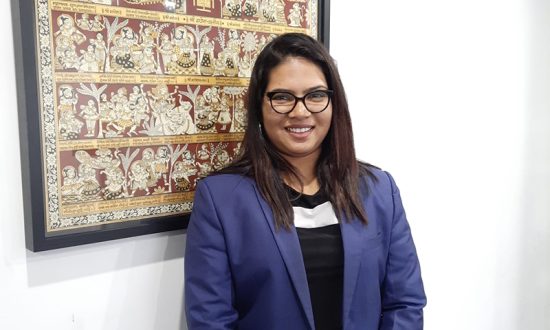Archana Eruvenkai is a Counselling Psychologist at Beautiful Minds. She has been previously associated with special needs children and has conducted and published research on Emotional Intelligence and Test Anxiety among students. She is an active philanthropist who has worked closely with various fellowships and NGOs like Dr. APJ Kalam Fellowship, and TFI. Her love and compassion for humanity motivated her to pursue her career in mental health.
The world today is competitive and opinionated. The education and experiences of life help students fight difficulties and choose a career they are passionate about. Sometimes, tough competitions, social influence, multiple opinions, and various other reasons can cause ambiguity and raise questions in students’ minds. At such times career counselling is a reliable source to help students choose what they are apt for and are passionate about.
As Confucius said, “Choose a job you love, and you will never have to work a day in your life.”, career counselling holds a significant place in the lives of students. It can aid their decisions and impact the way they approach their career choices, help find the best-fit career, help face challenges along the way, and help one gain the skills necessary for it.
Through counseling, other than the skills appropriate to their career, students are also equipped to understand themselves and find what is right for them. It aims to teach life skills like Problem-solving, Decision making, Communication skills, finding the best opportunities, being patient, and managing things optimally.
Let’s take a look at a few tips that students need to follow while making career choices:
- Assessment: Assessments of interest and personality are necessary for determining one’s career. It is important that the students understand the correlation between job satisfaction and emotional health. It is recommended for students to play to their strengths but not disregard their interests and passion. It is important to find the difference between achievable goals and irrational dreams to help the students introspect the best choice for them. Assessments cannot generally give a 100 per cent guarantee of a successful career. However, their results tend to cater as a guiding light to the students as a starting point with a few career options. It provides a holistic understanding of the student and their strengths, weakness, interest, and aspirations.
- Communication: Communication between the counsellor and the student is very important, especially understanding what are the students’ interests, values, and skills are significant to finding what is right for them. The communication should come with a guarantee of confidentiality so that the students are confident to bare their souls to the counsellor. This, in turn, helps in getting a clearer perspective of what careers to pursue. Often times students are led by their parents’ aspirations for them, and the counsellor plays a very important to bifurcate the parents’ needs and the student’s aspirations. This is something that students also need to understand before making decisions.
- Research: A significant amount of research must be done. The student, along with the added support of the counsellor, should engage in research about the different interests of the student. The students need to pay attention to the required resources shared by the counsellor for further learning and self-education. It helps in learning more about the industry and work ethics. The students must make use of additional resources like podcasts, videos, online courses, and digital and physical books.
- Mapping: Finding the right path to each of the career options can help the student make more realistic and satisfying choices. The students should also be keen on pursuing internships, part-time jobs, etc., that can act as a bridge to their desired choice of career. The counsellor, on the other hand, needs to do specific research to understand what added courses, skills, etc., will benefit the student to pursue his desired career.
- Strategising: The final step is to make a choice and strategise the journey towards a particular career. The process may include education choices, educational institutions, skills training, timetable, etc. The students need to assess all the requirements and strategise their further actions effectively.
Career counselling is a way to boost one’s confidence and fix the right path toward desired goals. Students feel supported and determined in the objectives of their careers when they are given the right guidance. Choosing the right career means a lifetime of contentment. In case one reaches a point where they no longer enjoy what they do, there’s always a choice of re-skilling and up-skilling oneself to pursue the newfound interest. This can be a process that requires a constant update as one matures and adjust themselves to the changing world.




